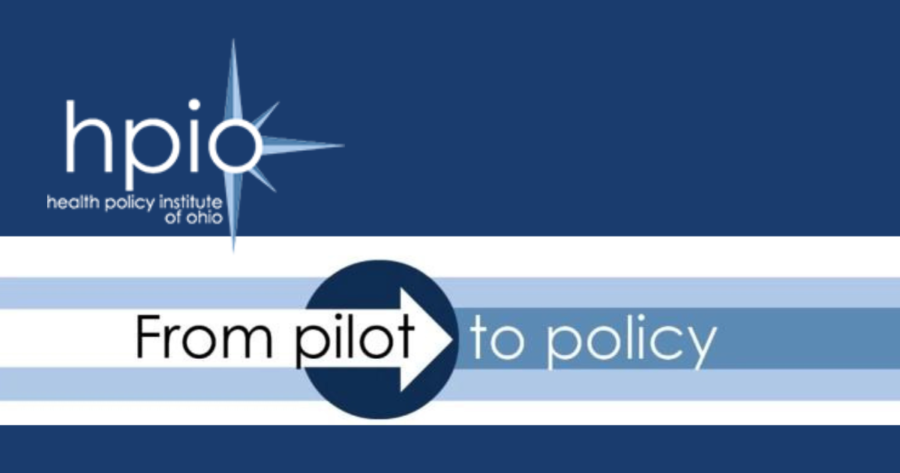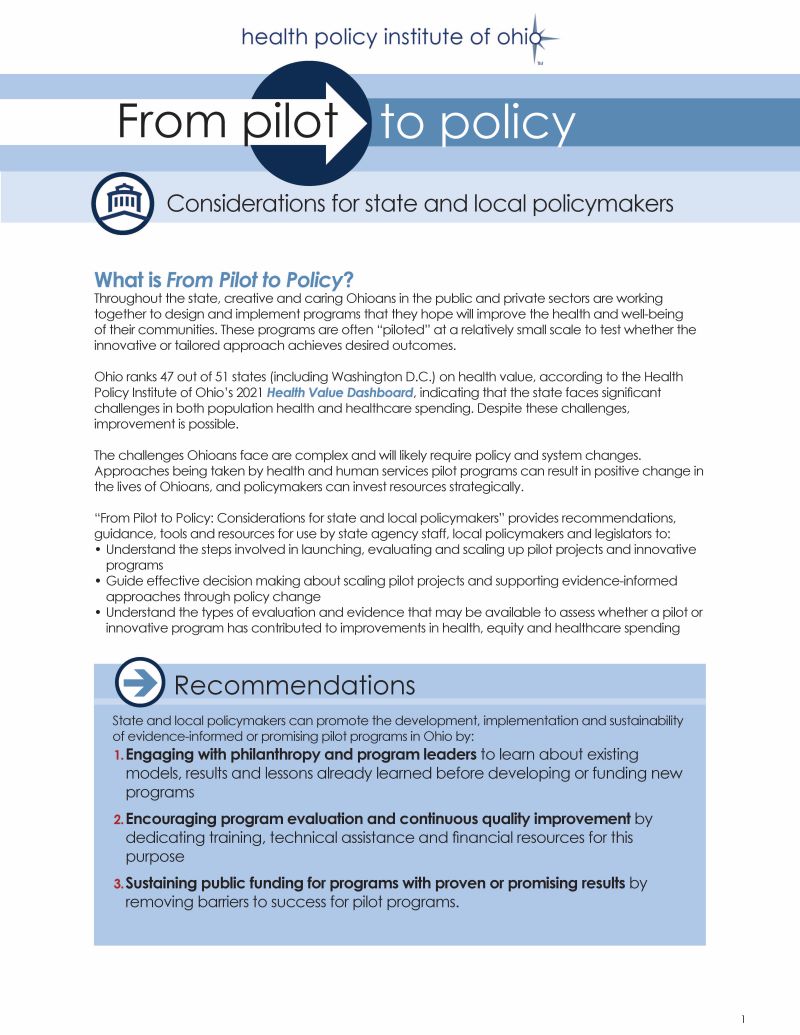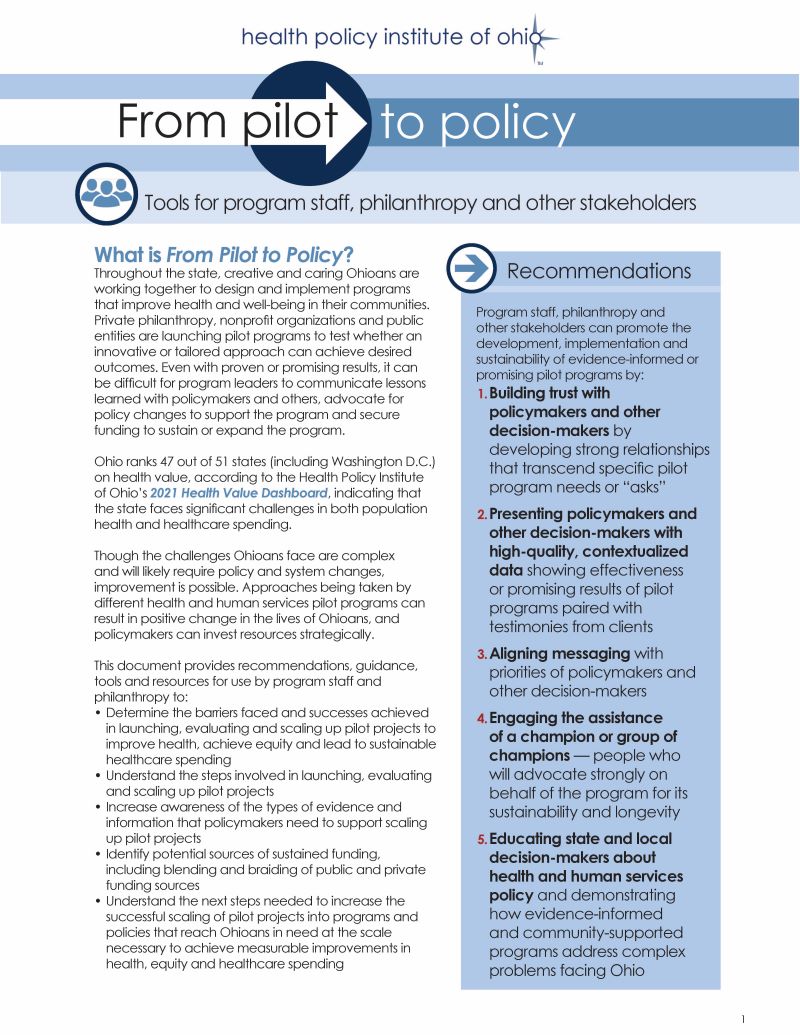With the support and funding from bi3, the Health Policy Institute of Ohio (HPIO) recently released a pair of reports designed to assist stakeholders and policymakers in developing policy and systems change through lessons from promising health and human services pilot programs.
The two reports, which examine how evidence-informed programs can be taken “from pilot to policy,” contain considerations for state and local policymakers and tools for program staff, philanthropy and other stakeholders.
To develop “From Pilot to Policy,” HPIO conducted 11 key-informant interviews with 13 experts in Ohio, including current and former policymakers, program staff and individuals involved with state policymaking. Insights shared in the key-informant interviews, as well as key quotes from the interviews, are included throughout these documents.
Pilot programs were defined as programs that are limited in size or duration, at least initially, and implemented with the goal of evaluating or demonstrating effectiveness so that they can potentially be expanded to reach more people in the future. Key informants gave many examples of health and human services pilot programs launched in Ohio in recent years, including medical-legal partnerships, Healthy Beginnings at Home, Step Up to Quality and pay-for-success programs associated with ResultsOHIO.






